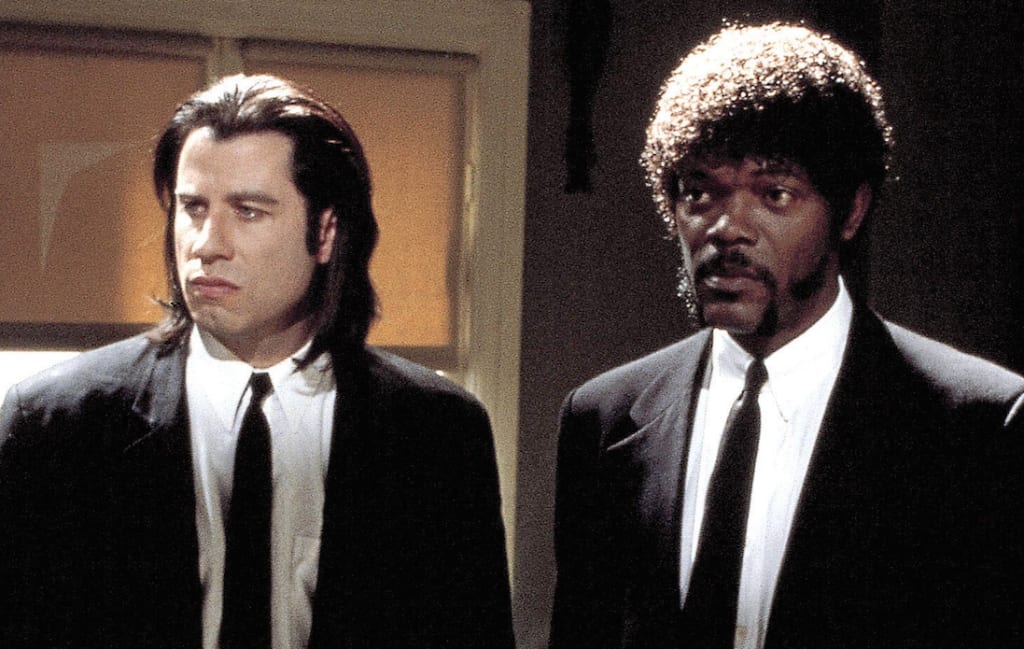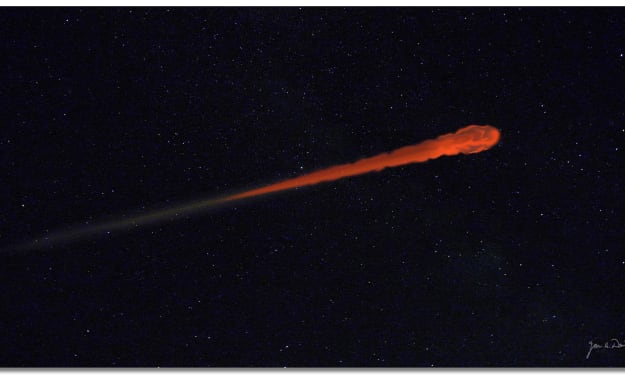Revisiting: Pulp Fiction
A brief look back at cinema's most important post-modern film.

Pulp Fiction - ‘Pulp’ referring to the pulp magazines and hardboiled crime novels popular during the mid-20th century - is a touchstone of post-modern film. The movie is non-linear and composed of three main interconnected short stories, with a prologue, an epilogue, and some brief linking material between stories. These stories are formatted in an unconventional structure that accommodates for self-reflectivity; through devotion to monologues and casual conversation.
Fresh off the domestic successes of Reservoir Dogs , a focused Tarantino would spend three months in Amsterdam developing the script that would become Pulp Fiction. Reminiscent of a mad artist frantic with obsession, he would seclude himself from all social interaction, with no phone or fax (popular at the time), producing hundreds of pages of indecipherable handwriting that his bemused typist would have to discern.
Tarantino's script would present to cinema the exposition of normality within the confines of abnormal societal circumstances. The engagement of casual exchanges between character's during less than typical scenarios is what potentially presents Pulp Fiction as that of a social study when isolated from the personalities at play. Morality isn't above occupation, love and partnership isn't above the unison of monetary gain, a shared experience of overcoming adversity isn't above maintaining a reputation.
A by-product from the successes of Pulp Fiction would be the revival of the career of John Travolta as Vincent Vega, a role in which was originally offered to Tarantino's faithful Michael Madsen - who turned it down in favour of featuring in Kevin Costner's Wyatt Earp, a box-office failure. The film would also shoot into the stratosphere the career of Samuel L. Jackson, who would play Vincent's partner in crime Jules Winnfield. Although Tarantino would write the Jules character with Jackson in mind, his original audition was overshadowed by that of actor Paul Calderón. This would leave Tarantino contemplating who would take the role, only finally being won over by Jackson during a second audition in which Jackson would re-enact the final diner scene from the movie.
These two character's in particular embrace the essence of Pulp Fiction's truer characteristic. A constant evil of sociopathic tendencies are prevalent, however it's these featured characters that would nonchalantly engage in dialogue that would ease the viewer into observing them as friends; regardless of their cold-blooded nature in killing. Their immoral behaviour plays second-fiddle to the more humane aspects of their personality, as is such the brilliance of the film's screenplay.
This approach to character manufacturing has been prevalent throughout Tarantino's career (films such as Reservoir Dogs and The Hateful Eight), where morals are an existential passivity that refuse in defining the 'protagonist'. The truer person is the materialistic one, the one we can see and hear in their good moments. We consistently choose to ignore the corroded moral framework at play and submit ourselves to the rules of Tarantino, that we accept, because we fundamentally as cinema, as an audience, enjoy it.
Pulp Fiction mustn’t be accused of its simplicity in delivering a mosaic of character interactions that are presided by a cohesive narrative that is compliant to this. Rather, the film must be revered in demonstrating a plethora of homages to what in essence, makes cinema such an enthralling, introspective experience. A thoughtful Tarantino, demonstrable in showcasing himself as a wayward, unflinching puppeteer; swaying his strings to the tune of subverting his audiences’ expectations. Post-modernism has lent itself a painstakingly difficult task when characterising the parameters of success pertaining to cinema as art. Pulp Fiction delivered in shaking up a bloated movie industry which bared a stagnated catalogue of commonplace formulas. It revels in showcasing just how dull movies have become - this is fundamentally why everyone should watch it, at least once. Like all great films, it criticises its medium.






Comments
There are no comments for this story
Be the first to respond and start the conversation.